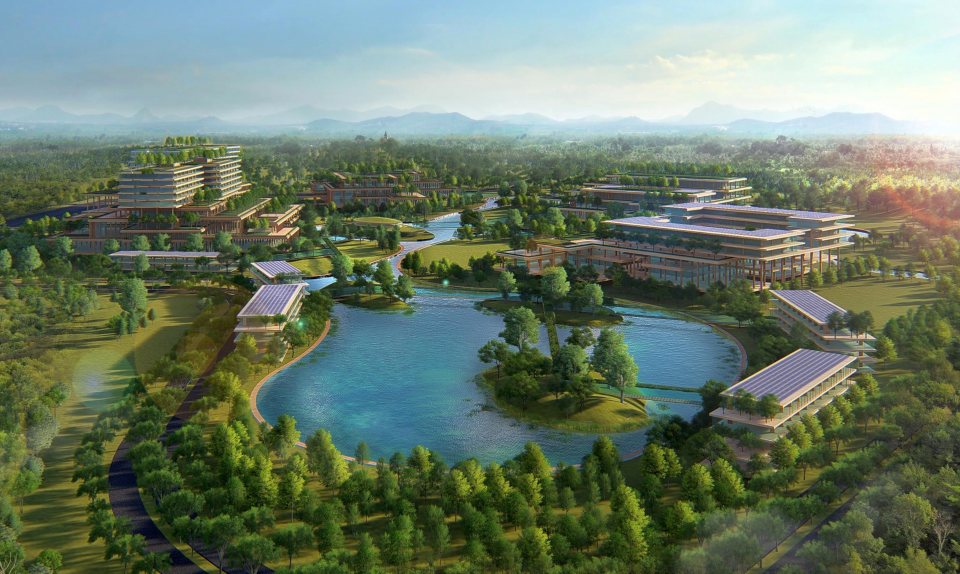
A million square meters in East Pattaya is now under active development to become Thailand’s first medical city. As part of the Eastern Economic Corridor initiative, Thammasat University has signed an agreement with local and foreign investors to build a medical valley in a huge stretch of land adjoining Mabprachan Lake. The university, founded in 1934 and the second oldest in Thailand, has already commenced building a hospital with 300 beds (later 600) with construction to be completed by 2024.
However, that’s not the end of the story. The huge zone is designated as a medical hub with a plethora of downstream industries. One of the main features will be Lakeside Premier Complex to include a clinic for seniors, a residential area for doctors and nurses, a dental facility and a rehabilitation unit. As Thailand’s population ages quickly whilst the birth rate continues to decline, the main purpose is to promote a better quality of life for seniors, both Thai and foreign.
The latest technology will lead to the creation of a “smart city” adopting IoT (Internet of Things) and medical A1 (artificial intelligence) to link all medical information in terms of record keeping, basic screening tools, research and laboratory and radiography information. An EEC spokesman said the huge site on Pattaya’s “dark side” was chosen because of its accessibility to two major airports, two deep water ports, a projected fast rail network and proximity to the hopefully bustling city of Pattaya.
Gasinee Witoonchart, the university rector, said the scheme was all about digital innovations for the healthcare and wellness sectors. Thailand is already the medical hub of Asia with over 1,000 public and 400 private hospitals with internationally-trained physicians. Before the pandemic, the country attracted 2 million medical tourists from abroad requesting general checkups, dental care, hip replacements, laser eye surgery, kidney transplants and heart surgery. Thailand is also gaining recognition as a research center for stem cell treatment.
The three-province Eastern Economic Corridor, a Thai and foreign multi-billion dollar investment hub for new technologies, has already strongly impacted Pattaya with ring roads, motorway extensions, beach reclamations, the Bali Hai harbour transformation and several other projects collectively known as neo (new) Pattaya. Thammasat University is separately in talks with American universities and private hospital associations to make substantial investments under the EEC tie-up. Pattaya’s future, like it or not, won’t resemble its past.
 |
 |
 |





